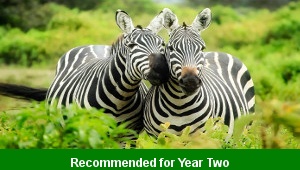Lesson Three – Ship’s Galley

This English teaching pack for Key Stage One gets the children to match and record different types of sentences that might be spoken in the galley on a pirate ship when making food for the captain and crew.
The class can select and compose questions and commands about how to prepare different vegetables to make some stew to serve to the pirates on a ship.
Download this teaching pack including a lesson plan, classroom activities and an interactive presentation to match and record different types of sentences that might be spoken in the galley on a pirate ship when making food for the captain and crew
Activities in this teaching pack include a set of cards to identify and sort sentences that are questions or statements about cooking foods in a ship’s galley and a worksheet for support ability levels to record sentences about working on board a pirate ship.
The interactive presentation gets the children to explore how to record different types of sentences that might be spoken in the galley on a pirate ship.
This lesson is part of an English scheme of work to get the children to read and follow sets of simple instructions, practise building words by adding the suffix ly to different word roots and write sentences that are commands, questions and statements. There are teaching activities for shared learning, differentiated worksheets to support independent learning and interactive presentations to introduce concepts and key skills.
-

Money Coin Sums
Practise identifying, combining and recording sets of coins that can make matching sums that can be used when shopping for different products
-

Maths Number Assessment
Assess abilities in working with numbers to solve abstract and contextual problems when calculating sums, products and quotients using different techniques and methods
-

Animal Lists
Investigate how to compile lists using commas to present information about some of the special animals that live in habitats around the world
-

English Spelling Assessment
Assess abilities in spelling different vocabulary words based on the National Curriculum programmes of study for Key Stage One
